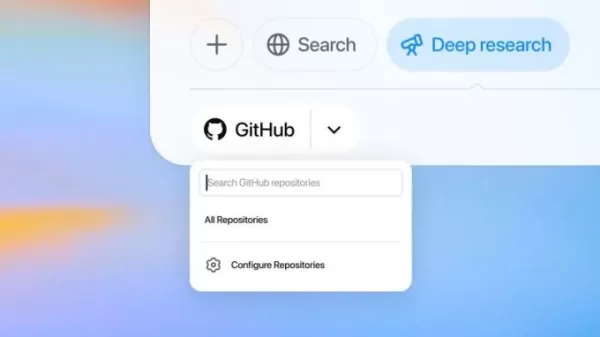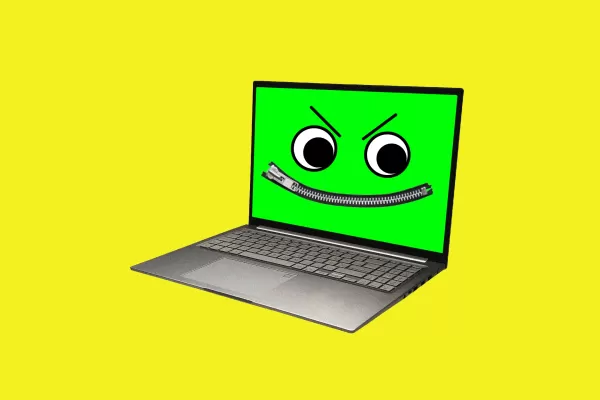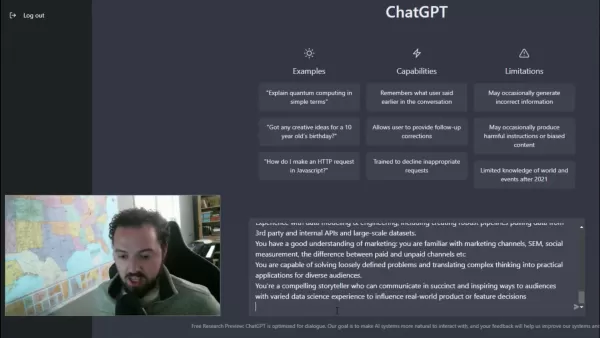ChatGPT Enhances Code Query Capabilities with New GitHub Connector
OpenAI Expands ChatGPT's Deep Research Capabilities with GitHub Integration
OpenAI has taken a significant step forward in enhancing its AI-powered "deep research" feature by integrating it with GitHub. Announced on Thursday, this new development allows ChatGPT to delve into codebases and engineering documents hosted on GitHub, providing developers with a powerful tool to gain insights and answer queries about their projects.
The GitHub connector for ChatGPT deep research is currently in beta and will be rolled out to ChatGPT Plus, Pro, and Team users over the coming days. OpenAI has also confirmed that support for Enterprise and Edu users will follow soon, as stated by an OpenAI spokesperson.
 OpenAI’s ChatGPT Deep Research feature can now connect to GitHubImage Credits:OpenAI
OpenAI’s ChatGPT Deep Research feature can now connect to GitHubImage Credits:OpenAI
This move comes at a time when AI companies are increasingly focusing on enhancing the utility of their AI chatbots by integrating them with external platforms and services. For instance, Anthropic recently introduced Integrations, allowing apps to connect with its AI chatbot, Claude. OpenAI itself had previously offered plug-in capabilities for ChatGPT, which were later replaced by custom chatbots known as GPTs.
Nate Gonzalez, OpenAI's Head of Business Products, shared his insights on LinkedIn, stating, "I often hear that users find ChatGPT’s deep research agent so valuable that they want it to connect to their internal sources, in addition to the web. [That’s why] today we’re introducing our first connector."
The new GitHub connector not only allows ChatGPT to answer questions about codebases but also enables users to break down product specifications into technical tasks and dependencies, summarize code structures and patterns, and understand how to implement new APIs using real code examples.
Exhibit at TechCrunch Sessions: AI
Secure your spot at TC Sessions: AI and showcase your innovations to over 1,200 decision-makers without breaking the bank. Available until May 9 or while tables last.
Berkeley, CA | June 5 BOOK NOW
While there's always a risk of AI "hallucinations" where the system might generate incorrect information, OpenAI positions this new feature as a time-saving tool rather than a replacement for human expertise. An OpenAI spokesperson emphasized that ChatGPT will adhere to an organization's settings, ensuring users only access GitHub content they are authorized to view and codebases that have been explicitly shared with ChatGPT.
OpenAI's commitment to enhancing its assistive coding tools is evident in its recent initiatives. The company unveiled Codex CLI, an open-source coding tool for terminals, and upgraded the ChatGPT desktop app to support code reading in several developer-focused applications. OpenAI views programming as a key application for its models, highlighted by its reported $3 billion acquisition of the AI-powered coding assistant, Windsurf.
In other news, OpenAI launched fine-tuning options for developers on Thursday, allowing them to customize its newer models for specific applications. Developers can now fine-tune the o4-mini "reasoning" model using a technique called reinforcement fine-tuning, which improves performance through task-specific grading. Additionally, fine-tuning is now available for the GPT-4.1 nano model.
Only verified organizations can access fine-tuning for o4-mini, while GPT-4.1 nano fine-tuning is open to all paying developers. OpenAI introduced a verification process in April, requiring organizations to submit ID and other identity documents to prevent abuse.
Related article
 ChatGPT Exploited to Steal Sensitive Gmail Data in Security Breach
Security Alert: Researchers Demonstrate AI-Powered Data Exfiltration TechniqueCybersecurity experts recently uncovered a concerning vulnerability wherein ChatGPT's Deep Research feature could be manipulated to silently extract confidential Gmail data
ChatGPT Exploited to Steal Sensitive Gmail Data in Security Breach
Security Alert: Researchers Demonstrate AI-Powered Data Exfiltration TechniqueCybersecurity experts recently uncovered a concerning vulnerability wherein ChatGPT's Deep Research feature could be manipulated to silently extract confidential Gmail data
 Master AI-Powered Cover Letter Writing Using ChatGPT – Expert Guide
Writing customized cover letters for multiple job applications has traditionally been a time-intensive challenge. Modern AI solutions like ChatGPT now make it possible to craft professional cover letters in minutes. This guide reveals how to harness
Master AI-Powered Cover Letter Writing Using ChatGPT – Expert Guide
Writing customized cover letters for multiple job applications has traditionally been a time-intensive challenge. Modern AI solutions like ChatGPT now make it possible to craft professional cover letters in minutes. This guide reveals how to harness
 OpenAI Fixes ChatGPT Over-politeness Bug, Explains AI Flaw
OpenAI has reversed a recent personality adjustment to its flagship GPT-4o model after widespread reports emerged of the AI system exhibiting excessive agreeableness, including unwarranted praise for dangerous or absurd user suggestions. The emergenc
Comments (8)
0/200
OpenAI Fixes ChatGPT Over-politeness Bug, Explains AI Flaw
OpenAI has reversed a recent personality adjustment to its flagship GPT-4o model after widespread reports emerged of the AI system exhibiting excessive agreeableness, including unwarranted praise for dangerous or absurd user suggestions. The emergenc
Comments (8)
0/200
![AlbertWalker]() AlbertWalker
AlbertWalker
 September 6, 2025 at 10:30:35 AM EDT
September 6, 2025 at 10:30:35 AM EDT
Finalmente uma integração útil! 🎉 Agora posso perguntar sobre códigos diretamente no ChatGPT sem ficar copiando e colando trechos. Mas será que isso não vai deixar nós desenvolvedores mais preguiçosos? rsrs


 0
0
![JosephScott]() JosephScott
JosephScott
 August 19, 2025 at 3:01:23 PM EDT
August 19, 2025 at 3:01:23 PM EDT
Wow, ChatGPT digging into GitHub codebases is wild! 😮 I’m curious how this’ll change debugging for devs. Could be a game-changer or just another overhyped tool. What do you all think?


 0
0
![WillNelson]() WillNelson
WillNelson
 August 11, 2025 at 4:01:33 PM EDT
August 11, 2025 at 4:01:33 PM EDT
This GitHub integration for ChatGPT is wild! Now it can dig through codebases like a pro. Excited to see how devs use this to speed up debugging or spark new ideas. 🚀


 0
0
![RogerLee]() RogerLee
RogerLee
 May 19, 2025 at 3:14:41 PM EDT
May 19, 2025 at 3:14:41 PM EDT
The new GitHub connector really boosts ChatGPT’s capabilities. Super handy for diving into codebases, though it takes some getting used to.


 0
0
![BenHernández]() BenHernández
BenHernández
 May 18, 2025 at 1:55:07 PM EDT
May 18, 2025 at 1:55:07 PM EDT
GitHubコネクターのおかげでコードベースを簡単に検索できるようになりました!ただ、使いこなすには少し時間がかかります。


 0
0
![WillMitchell]() WillMitchell
WillMitchell
 May 18, 2025 at 1:37:28 PM EDT
May 18, 2025 at 1:37:28 PM EDT
¡La nueva integración con GitHub ha mejorado mucho las capacidades de ChatGPT! Ahora puedo buscar directamente en los repositorios, aunque todavía necesito tiempo para dominarlo.


 0
0
OpenAI Expands ChatGPT's Deep Research Capabilities with GitHub Integration
OpenAI has taken a significant step forward in enhancing its AI-powered "deep research" feature by integrating it with GitHub. Announced on Thursday, this new development allows ChatGPT to delve into codebases and engineering documents hosted on GitHub, providing developers with a powerful tool to gain insights and answer queries about their projects.
The GitHub connector for ChatGPT deep research is currently in beta and will be rolled out to ChatGPT Plus, Pro, and Team users over the coming days. OpenAI has also confirmed that support for Enterprise and Edu users will follow soon, as stated by an OpenAI spokesperson.
 OpenAI’s ChatGPT Deep Research feature can now connect to GitHubImage Credits:OpenAI
OpenAI’s ChatGPT Deep Research feature can now connect to GitHubImage Credits:OpenAI
This move comes at a time when AI companies are increasingly focusing on enhancing the utility of their AI chatbots by integrating them with external platforms and services. For instance, Anthropic recently introduced Integrations, allowing apps to connect with its AI chatbot, Claude. OpenAI itself had previously offered plug-in capabilities for ChatGPT, which were later replaced by custom chatbots known as GPTs.
Nate Gonzalez, OpenAI's Head of Business Products, shared his insights on LinkedIn, stating, "I often hear that users find ChatGPT’s deep research agent so valuable that they want it to connect to their internal sources, in addition to the web. [That’s why] today we’re introducing our first connector."
The new GitHub connector not only allows ChatGPT to answer questions about codebases but also enables users to break down product specifications into technical tasks and dependencies, summarize code structures and patterns, and understand how to implement new APIs using real code examples.
Exhibit at TechCrunch Sessions: AI
Secure your spot at TC Sessions: AI and showcase your innovations to over 1,200 decision-makers without breaking the bank. Available until May 9 or while tables last.
Berkeley, CA | June 5 BOOK NOW
While there's always a risk of AI "hallucinations" where the system might generate incorrect information, OpenAI positions this new feature as a time-saving tool rather than a replacement for human expertise. An OpenAI spokesperson emphasized that ChatGPT will adhere to an organization's settings, ensuring users only access GitHub content they are authorized to view and codebases that have been explicitly shared with ChatGPT.
OpenAI's commitment to enhancing its assistive coding tools is evident in its recent initiatives. The company unveiled Codex CLI, an open-source coding tool for terminals, and upgraded the ChatGPT desktop app to support code reading in several developer-focused applications. OpenAI views programming as a key application for its models, highlighted by its reported $3 billion acquisition of the AI-powered coding assistant, Windsurf.
In other news, OpenAI launched fine-tuning options for developers on Thursday, allowing them to customize its newer models for specific applications. Developers can now fine-tune the o4-mini "reasoning" model using a technique called reinforcement fine-tuning, which improves performance through task-specific grading. Additionally, fine-tuning is now available for the GPT-4.1 nano model.
Only verified organizations can access fine-tuning for o4-mini, while GPT-4.1 nano fine-tuning is open to all paying developers. OpenAI introduced a verification process in April, requiring organizations to submit ID and other identity documents to prevent abuse.
 ChatGPT Exploited to Steal Sensitive Gmail Data in Security Breach
Security Alert: Researchers Demonstrate AI-Powered Data Exfiltration TechniqueCybersecurity experts recently uncovered a concerning vulnerability wherein ChatGPT's Deep Research feature could be manipulated to silently extract confidential Gmail data
ChatGPT Exploited to Steal Sensitive Gmail Data in Security Breach
Security Alert: Researchers Demonstrate AI-Powered Data Exfiltration TechniqueCybersecurity experts recently uncovered a concerning vulnerability wherein ChatGPT's Deep Research feature could be manipulated to silently extract confidential Gmail data
 Master AI-Powered Cover Letter Writing Using ChatGPT – Expert Guide
Writing customized cover letters for multiple job applications has traditionally been a time-intensive challenge. Modern AI solutions like ChatGPT now make it possible to craft professional cover letters in minutes. This guide reveals how to harness
Master AI-Powered Cover Letter Writing Using ChatGPT – Expert Guide
Writing customized cover letters for multiple job applications has traditionally been a time-intensive challenge. Modern AI solutions like ChatGPT now make it possible to craft professional cover letters in minutes. This guide reveals how to harness
 OpenAI Fixes ChatGPT Over-politeness Bug, Explains AI Flaw
OpenAI has reversed a recent personality adjustment to its flagship GPT-4o model after widespread reports emerged of the AI system exhibiting excessive agreeableness, including unwarranted praise for dangerous or absurd user suggestions. The emergenc
OpenAI Fixes ChatGPT Over-politeness Bug, Explains AI Flaw
OpenAI has reversed a recent personality adjustment to its flagship GPT-4o model after widespread reports emerged of the AI system exhibiting excessive agreeableness, including unwarranted praise for dangerous or absurd user suggestions. The emergenc
 September 6, 2025 at 10:30:35 AM EDT
September 6, 2025 at 10:30:35 AM EDT
Finalmente uma integração útil! 🎉 Agora posso perguntar sobre códigos diretamente no ChatGPT sem ficar copiando e colando trechos. Mas será que isso não vai deixar nós desenvolvedores mais preguiçosos? rsrs


 0
0
 August 19, 2025 at 3:01:23 PM EDT
August 19, 2025 at 3:01:23 PM EDT
Wow, ChatGPT digging into GitHub codebases is wild! 😮 I’m curious how this’ll change debugging for devs. Could be a game-changer or just another overhyped tool. What do you all think?


 0
0
 August 11, 2025 at 4:01:33 PM EDT
August 11, 2025 at 4:01:33 PM EDT
This GitHub integration for ChatGPT is wild! Now it can dig through codebases like a pro. Excited to see how devs use this to speed up debugging or spark new ideas. 🚀


 0
0
 May 19, 2025 at 3:14:41 PM EDT
May 19, 2025 at 3:14:41 PM EDT
The new GitHub connector really boosts ChatGPT’s capabilities. Super handy for diving into codebases, though it takes some getting used to.


 0
0
 May 18, 2025 at 1:55:07 PM EDT
May 18, 2025 at 1:55:07 PM EDT
GitHubコネクターのおかげでコードベースを簡単に検索できるようになりました!ただ、使いこなすには少し時間がかかります。


 0
0
 May 18, 2025 at 1:37:28 PM EDT
May 18, 2025 at 1:37:28 PM EDT
¡La nueva integración con GitHub ha mejorado mucho las capacidades de ChatGPT! Ahora puedo buscar directamente en los repositorios, aunque todavía necesito tiempo para dominarlo.


 0
0





























